.jpg)
Justin Dolan Stover
Chair and Professor of History - Modern European History; Irish History
Office: LA 337
Education
Ph.D. Trinity College Dublin
Research Interests
Modern European history; transnational history of nationalism, war & revolution; environmental history of war; modern Ireland, Britain & France; First World War; interwar Europe.
Representative Publications
Enduring Ruin: Environmental Destruction during the Irish Revolution (Dublin: University College Dublin Press, 2022).
"Political Ecology in Nationalist Literature, 1880-1922,” in The Cambridge History of Irish Literature and the Environment, ed. Malcolm Sen, (Cambridge: Cambridge University Press, 2022), 134-49.
"The Transformation of the Irish College, Paris: War, Education, and Administration, 1870-1918," in Forming Catholic Communities: Irish, Scots and English College Networks in Europe, 1564-1918, ed. Liam Chambers and Thomas O’Connor (Leiden, Netherlands/Boston, MA: Brill, 2017), 304-22.
"'Shattered Glass and Toppling Masonry': War Damage in Dublin and Paris," in Paris - Capital of Irish Culture: France, Ireland and the Republic, 1798-1916, ed. Pierre Joannon and Kevin Whelan (Dublin: Four Courts Press, 2017), 175-87.
"Families, Vulnerability and Sexual Violence during the Irish Revolution," in Perceptions of Pregnancy: From the Medieval to the Modern, ed. Jennifer Evans and Ciara Meehan, (London: Palgrave Macmillan, 2017), 53-69.
"Violence, Trauma, and Memory in Ireland: The Psychological Impact of War and Revolution on a Liminal Society, 1916-1923" in Jason Crouthamel and Peter Leese, eds., Aftershock: Psychological Trauma and the Legacies of War (Switzerland: Springer Nature, Palgrave Macmillan, 2017), 117-40.
"La Bretagne et l’Insurrection de Pâques 1916," En Envor: revue d’histoire contemporaine en Bretagne, no. 7 (February 2016).
"Redefining Allegiance: Loyalty, Treason and the Foundation of the Irish Free State" in Mel Farrell, Jason Knirk, and Ciara Meehan, eds., A Formative Decade: Politics, Economics and Identity in Ireland, 1921-32 (Dublin: Irish Academic Press), 108-31.
"Irish Political Prisoner Culture, 1916-23" in CrossCurrents, 64:1 (March 2014), 90-106.
"Periphery of War or First Line of Defense? Ireland Prepares for Invasion, 1907-15" in Fancia., vol. 40 (Paris, Deutsches Historisches Institut, 2013), 385-96.
"Terror confined? Prison violence in Ireland, 1919-21" in David Fitzpatrick (editor), Terror in Ireland, 1916-1923 (Dublin, Lilliput Press, 2012), 219-35.
Courses
HIST 1106 Modern Europe
HIST 1120 Global History: War and Revolution
HIST 2291 Introduction to Research
HIST 4424 The French Revolution & Napoleon
HIST 4443 Environmental History of Ireland
HIST 4445 Modern Irish History
HIST 4466 World War I
HIST 4468 World War II and the Holocaust
HIST 4491 Seminar
HIST 6600 Graduate Seminar: War and Violence in the Modern World
HIST 6600 Graduate Seminar: The Irish Revolution
Graduate Supervision
I welcome all graduate student subject proposals in modern European history, particularly those relating to the First World War, organized violence, environmental history of war, post-colonialism, and nationalism.
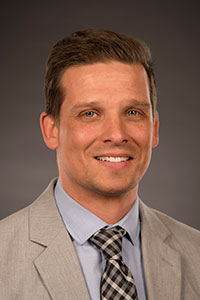
Zackery Mirza Heern
Associate Dean for the Social and Behavioral Sciences, College of Arts and Letters, Professor of History - Middle East, Islam, World History
Office: LA 333
Education
Ph.D., University of Utah, History
M.A., University of Utah, Middle East Studies
B.A., UCLA, History
Research and Teaching Interests
Middle East, Islam, World History, Iran, Iraq, Shiʿism, Bábí and Bahá’í studies, Arabic, Persian
Books
The Emergence of Modern Shi‘ism: Islamic Reform in Iraq and Iran. London: Oneworld Publications, 2015.
Shi‘i Law and Leadership: The Influence of Mortaza Ansari. Saarbrucken, Germany: Lambert Academic Publishing, 2010.
Peer-Reviewed Journal Articles
“The Bāb and ʿAlī Muḥammad, Islamic and Post-Islamic: Multiple Meanings in the Writings of Sayyid ʿAlī Muḥammad Shīrāzī (1819– 1850),” Religions, 2023.
“Muḥammad Bāqir al-Ṣadr (d. 1980),” The Encyclopaedia of Islam Three, Edited by Kate Fleet, et. al. Leiden: Brill, 2022: 23-28.
“Muḥammad Bāqir al-Majlisī (d. 1110/1698),” The Encyclopaedia of Islam Three, Edited by Kate Fleet, et. al. Leiden: Brill, 2022: 84-90.
“Shiʿi Educational Traditions and Systems in Early Modern Iraq and Iran,” in History of Early Modern Educational Thought. Edited by Cristiano Casalini, et. al. Leiden: Brill, 2021.
“Muḥammad Bāqir Khwānsārī (1811-1895),” The Encyclopaedia of Islam Three, Edited by Kate Fleet, et. al. Leiden: Brill, 2020: 97-98.
“Ijtihad and Anti-Ijtihad in Shiʿi History,” in Ijtihad and Taqlid: Past, Present, and Future. Birmingham: Al-Mahdi Institute, 2019.
“Muḥammad Ibrāhīm Kalbāsī (1766–1845),” The Encyclopaedia of Islam Three, Edited by Kate Fleet, et. al. Leiden: Brill, 2019: 79-80.
“Āyatallāh Abū l-Qāsim Kāshānī (1882–1962),” The Encyclopaedia of Islam Three, Edited by Kate Fleet, et. al. Leiden: Brill, 2019: 90-92.
“Three Sources of Shiʿi Knowledge and Authority: Texts, Reason, and Mysticism in Islamic Intellectual History,” Journal of Shiʿa Islamic Studies. Winter-Spring 2018 Vol. XI, No. 1-2, pp. 43-78.
“One Thousand Years of Islamic Education in Najaf: Myth and History of the Shi‘i Hawza,” Iranian Studies. Vol. 50, Issue 3, 2017, pp. 415-438
“Thou Shalt Emulate the Most Knowledgeable Living Cleric: Redefinition of Islamic Law and Authority in Usuli Shi‘ism,” Journal of Shi‘a Islamic Studies. Vol. VII, No. 3, Summer 2014, pp. 321-344.
“Minority Religions in the Middle East: 1250-1920,” in Cultural Sociology of the Middle East, Asia, and Africa, Edited by Andrea L. Stanton, et. al. Vol. 1. Thousand Oaks: Sage Publications, 2012, pp. 159-162.
Selected Public-Facing Articles
“Who are the Bahaʾis and why are they so persecuted?” The Conversation, 2017.
“Iran’s Presidential Elections and Renewed Efforts to Release Bahaʾi Leaders,” Muftah, 2017.
“Understanding the Emergence of Modern Shiʿism,” Your Middle East, 2015.
“Iranian Ayatollah Defends Bahaʾi Rights and Goes Head-to-Head with the Regime,” Your Middle East and Iran Press Watch, 2014.
“Empty Charm or Game Changing Substance? How to Read Iran,” World Affairs Journal and Your Middle East, 2013.
“Propaganda of Death Becomes Reality for Bahaʾis in Iran,” Your Middle East, 2013.
“Iran’s Human Rights Crisis and the Bahaʾi Faith,” Your Middle East, 2013.
Courses Taught
ARBC 1101 Elementary Arabic I
ARBC 1102 Elementary Arabic II
HIST 1102 World History II
HIST 2254 Middle East History and Culture
HIST 4419/5519 History of World Religions
HIST 4476/5576 Modern Middle East
HIST 4454/5554 Modern Iraq and Iran
HIST 4474/5574 Islam in the Modern World
HIST 4440/5540 History of Revolutions
HIST 4491 Seminar
HIST 6600 Proseminar
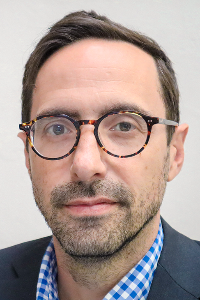
Jonathan Fardy, Ph.D.
Chair and Associate Professor of Art
Office: Fine Arts, Building #11, Room 417
Education:
PhD, Theory and Criticism, University of Western Ontario
MA, Art History, Bowling Green State University
BA, Art, Framingham State College
Research:
My research investigates the aesthetic strategies that underwrite the constitution and argumentative structure of theories of art and politics from the 1960s to the present. My recent work has been particularly focused on the work of François Laruelle. A complete list of my publications can be found here: https://idahostate.academia.edu/JonathanFardy
Current Book Project:
Fardy, J. Works of Art: Experiments in Materialist Aesthetics
Published Books:
2024: Fardy, J. Ideology and Interpellation: Anti-Humanism to Non-Philosophy (Bloomsbury Academic).
Courses Taught:
- All levels of Art History
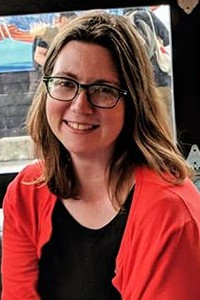
Lauren MacDonald
Assistant Professor and Director of Undergraduate Studies - Latin American History
Office: LA 335
Education
Ph.D. Johns Hopkins University
Research Interests
Religion, Colonial Latin America, The Caribbean, and the Atlantic World.
Recent Publications
“The Cemí and the Cross: Hispaniola Indians and the Regular Clergy, 1494-1517,” in The Spanish Caribbean and the Atlantic World in the Long Sixteenth Century, edited by Ida Altman and David Wheat (University of Nebraska, 2019).
Major Grants
Omohundro Institute Short-Term Research Fellowship, Folger Institute at the Folger Shakespeare Library (2019)
Center for New World Comparative Studies Fellowship, The John Carter Brown Library (2018)
Kislak Fellowship for the Study of the History and Cultures of the Early Americas, John W. Kluge Center, Library of Congress (2017)
Fulbright Research Fellowship, Spain, Institute of International Education (2013)
Jacob K. Javits Fellowship, U.S. Department of Education (2011)
Foreign Language and Area Studies Fellowship for Portuguese, U.S. Department of Education (2010)
Courses Taught
HIST 1101: World History I
HIST 1105: Foundations of Europe
HIST 2251: Latin American History and Culture
HIST 3307: Early North America
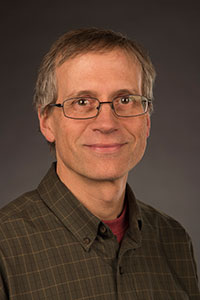
Kevin Marsh
Professor - Idaho and the American West; Twentieth-Century U.S. History; environmental history
Office: LA 334
Research Interests
Debates over public resources in the American West, especially groundwater development in the American West and on urban water management in Idaho.
Books
Drawing Lines in the Forest: Creating Wilderness Areas in the Pacific Northwest. Weyerhaeuser Environmental Books (series editor William Cronon). Seattle and London: University of Washington Press, 2007.
Idaho: The Heroic Journey, co-authored with Katherine Aiken and Laura Woodworth-Ney. (Boise: Idaho State Historical Society, 2006).
Articles and Book Chapters
“Crossing Divides: An Environmental History of Idaho.” In Idaho's Place: Rethinking the Gem State's Past, edited by Adam M. Sowards, 44-72. Seattle: University of Washington Press and Moscow, ID: Institute for Pacific Northwest Studies, 2014.
“Rooting for the Home Team, Wherever Home Might Be: Community and Identity in Sports.” Idaho Humanities, Fall 2014.
“‘Save French Pete’: Evolution of Wilderness Protests in Oregon.” In Natural Protests: Essays on the History of American Environmentalism, eds. Michael Egan and Jeff Crane, 223-44. New York: Routledge, 2009.
“The Ups and Downs of Mountain Life: Historical Patterns of Adaptation in the Cascade Mountains,” Western Historical Quarterly 25, no. 2 (Summer 2004): 193-213.
“‘This is Just the First Round': Designating Wilderness in the Oregon Cascades, 1950-1964.” Oregon Historical Quarterly 103, no. 2 (Summer 2002): 210-233.
Awards
Dr. Marsh has twice been awarded for ISU Outstanding Public Service.
Courses Taught
HIST 1118 U.S. History and Culture
HIST 3309 Modern United States
HIST 4423 Idaho History
HIST 4427 North American West
HIST 4432 U.S. Environmental History
HIST 6610 Proseminar - Environment & Society
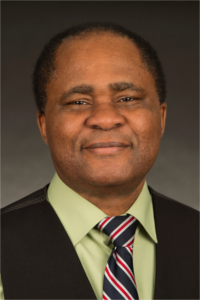
Raphael Chijioke Njoku
Professor - African History and Culture
Office: LA 344
Education
Ph.D. Dalhousie University
Research Interests
African intellectual history, African social and political history, African philosophy, culture and development, democratization, social movements and comparative politics
Books
West African Masking Tradition and Diaspora Masquerade Carnivals: History, Memory, Symbols, and Transnationalism. NY: Rochester University Press, 2020.
United States and African Relations: 1400 to the Present. New Haven: Yale University Press, 2020.
Igbo in the Atlantic World: African Origins and Diasporic Destinations, coedited with Toyin Falola. Indiana University Press, October 2017.
The Igbo in an Age of Globalization: Reflections on Culture, Language, and Social Reordering, coedited with Chima J. Korieh. Glassboro, NJ: Goldline and Jacobs, 2016.
The History of Somalia. Westport: ABC-CLIO, Press, 2013.
Africa and the Wider World, coedited with Hakeem Ibikunle TIjani and Tiffany Fawn Jones. Boston: Pearson/Macmillan, 2010.
African History, coedited with Chima J. Korieh, Iowa: University Readers, Inc., 2010.
War and Peace in Africa: History, Nationalism, and the State, coedited with Toyin Falola. Durham, NC: Carolina Academic Press, 2010.
Missions, States, and Colonial European Expansion in Africa, coedited with Chima J. Korieh. New York: Routledge, 2007.
Culture and Customs of North Africa: Morocco. Westport: Greenwood Press, 2005
African Cultural Values and Igbo Political Leadership in Colonial Nigeria, 1900-1966. New York: Routledge, 2006.
Articles and Book Chapters
“The Conflation of Race and Propaganda in the Mobilization of Africans for World War II,” Journal of Asian and African Studies -JAAS (2021): 1-15.
“Nationalism, Decolonization, and Exilic Diplomacy: A Study of Kabaka Mutesa II of Uganda and Sultan Mohammed (Ibn Youssef) V of Morocco, 1940s-1963,” Journal of Colonialism and Colonial History – JCCH (Spring 2021): 1-27.
"Igbo-Ukwu." In Oxford Research Encyclopedia of African History. Oxford University Press. Article published in March 2019. doi: http://dx.doi.org/10.1093/acrefore/9780190277734.013.585.
"Onitsha Market Literature: Narrating Identity and Survival in a Colonial African City." In Narrative, Identity, and Academic Community in Higher Education, edited by Brian Atterberry et al. 31-46. New York: Routledge, 2017.
"Introduction." Igbo in the Atlantic World: African Origins and Diasporic Destinations. Bloomington: Indiana University Press, 2016), 7-16.
"Becoming African: Igbo Slaves and Social Reordering in Nineteenth-Century Niger Delta." In Igbo in the Atlantic World: African Origins and Diasporic Destinations. Bloomington: Indiana University Press, 2016), 99-122.
"The Making of Igbo Ethnicity in the Nigerian Setting: Colonialism, Identity, and the Politics of Difference.". Igbo in the Atlantic World: African Origins and Diasporic Destinations. Bloomington: Indiana University Press, 2016), 265-284.
“The Ahiara Declaration and the Faith of Biafra in a Postcolonial/Bi-Polar World, 1967-1970.” In Toyin Falola and Ogechukwu Ezekwem (eds.), Writing the Nigeria-Biafra War (London: James Curry, 2016), 62-80.
“Interrogating Discursive Constructions of African Political History: From the Precolonial to the Postcolonial,” in Kenneth Omeje (ed.), The Crisis of Postcoloniality in Africa (Dakar: Council for the Development of Social Science Research in Africa, 2015), 29-44.
"Eastern Nigeria and the Rise of a New Class of Ogaranyas (Wealthy Men) in the Late Nineteenth-century: A Biography of Chief Igwebe Odum of Arondizuogu (c.1860-1940)." Journal of African Economic History 36 (February 2012): 27-52.
"Neoliberalism in Microcosm: A Study of Precolonial Igbo of Eastern Nigeria." MBARI: The International Journal of Igbo Studies 1, no.1 (2008): 45-68.
"Civil Society and Igbo Traditional Politics: A Historical Survey of Age Grades, Secret Societies, Social Clubs, Women's Organizations, and Town Unions since 1900." International Journal of African Studies 6, no. 2 (2008): 15-28.
"Civil Society in the Islamic Kingdom of Morocco." Journal of International Review of Politics and Development 5, no.2 (2007): 37-53.
"Don C. Ohadike: The Man, His Intellectual Legacy and African Historiography." Journal of Dialectical Antropology 10, no. 4. (August 2007): 32-50.
"Deadly Ethnic Violence and the Imperiative of Federalism an Power-sharing: Could a Consociation Hold in Rwanda?" Journal of Commonwealth Comparative Politics 43, no. 1 (March 2005): 82-101.
Awards
Named an ISU Outstanding Researcher, 2017.
Library Residency Fellowship, Indiana University Bloomington, 2009.
Victor A. Olurunsola Endowed Research Award for Young Scholars, 2007.
Eleanor Young Love Faculty Award for Distinguished Scholarship, 2006.
NEH’s Schomburg Center Residence Fellowship, 2006-7.
West African Research Council Grant, 2001.
Government and Opposition Essay Prize, 2001.
Courses
HIST 1120 Global History Since 1500
HIST 2255 African History and Culture
HIST 4491 Seminar
IS 3300 Travel and Study Abroad
IS 3350 International Symposium
IS 4493 Senior Thesis
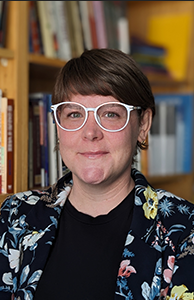
Sarah Robey
Associate Professor | Director of the University Honors Program 20th-Century U.S. History; History of Science and Technology
Office: Pocatello Office: LA 340
Set up a time to meet with Dr. Robey here.
Education
Ph.D. Temple University
Research Interests
History of nuclear science and technology; history of energy; history of the Cold War; citizenship; 20th-century American cultural history; civil defense, disasters, and emergency management.
Books
Atomic Americans: Citizens in a Nuclear State, Cornell University Press, 2022.
Book Chapters
“‘Limitless Power at Man’s Command’: Sponsored Films, Science Education, and Visions of the Nuclear Future in the 1950s,” in Robert Lifset, Raechel Lutz, and Sarah Stanford-McIntyre, eds., American Energy Cinema, West Virginia University Press, 2023.
Digital Media Projects
Duck and Cover: The Civil Defense History Podcast.
Selected Articles and Book Reviews
“From Raindrop to Field: Irrigation History in Idaho, 1870-1970,” with Laura Woodworth-Ney, Historic Context Survey, Idaho State Historic Preservation Office, forthcoming.
"Secret Histories of the Bomb," Review of Fallout: Conspiracy, Cover-Up, and the Deceitful Case for the Atomic Bomb, by Peter Watson, and Burning the Sky: Operation Argus and the Untold Story of the Cold War Nuclear Tests in Outer Space, by Mark Wolverton, Nature 562 (October 18, 2018), 342-343.
Review of Farm Hall and the German Atomic Project of World War II: A Dramatic History, by David C. Cassidy, Physics in Perspective 20 (September 2018), 305-313.
"Four Reasons Slack Will Change How You Teach," with Kathleen Kole de Peralta, Inside Digital Learning, Inside Higher Education, September 19, 2018.
Major Grants
Research Fellow, Idaho Humanities Council, 2022-2023.
Podcast Grant, The Reinventing Civil Defense Project, Stevens Institute of Technology and the Carnegie Corporation of New York.
Swedish Foundation for Humanities and Social Sciences, 2018.
Swiss National Science Foundation Exploratory Grant, 2017.
Courses Taught
HIST 1112 U.S. History since 1865
HIST 1118 U.S. History and Culture
HIST 2291 Introduction to Research
HIST 4409/5509 Modern United States
HIST 4418/5518 History for Teachers
HIST 4433/5533 History of Energy in the Modern U.S.
HIST 4434/5534 The Atomic Age
HIST 4440/5540 History of Revolutions
HIST 4467/5567 Cold War Culture in the U.S.
HIST 4491 History Seminar
HIST 6605 Introduction to Graduate Studies in History
HIST 6620 Research and Writing Seminar
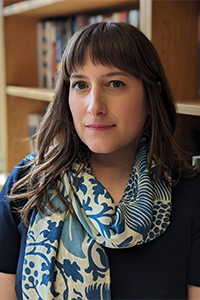
Marie Stango
Director Of Graduate Studies, Director of History Education, and Assistant Professor - 18th- and 19th-Century U.S.; Women, Gender, and Sexuality; African American and African Diaspora studies
Office: LA 331
Make an appointment to meet with Dr. Stango here.
Education
Ph.D., University of Michigan (2016)
M.A., University of Michigan (2012)
B.A., New York University (2009)
Research Interests
Slavery and emancipation in the Atlantic World; women, gender, and sexuality; African American and African Diaspora studies; 18th and 19th century U.S. History; unfreedom in American History; American Empire
Selected Fellowships and Grants
National Endowment for the Humanities Postdoctoral Fellowship, Library Company of Philadelphia, 2019-2020
American Fellowship, American Association of University Women, 2015-2016
Mellon Public Humanities Fellowship, Charles H. Wright Museum of African American History (Detroit, MI) and the University of Michigan, 2015
Ruth R. and Alyson R. Miller Fellowship in Women’s History, Massachusetts Historical Society, 2013-2014
Frances Lewis Fellowship in Gender and Women’s Studies, Virginia Historical Society, 2013-2014
Travel Grant, John Hope Franklin Research Center for African and African American History, Duke University, 2013-2014
Albert M. Greenfield Foundation Fellowship in African American History, Library Company of Philadelphia, 2013-2014
Current Projects
Second Black Republic: Freedom and Family in the Making of Liberia, book manuscript in preparation.
Courses Taught
HIST 1111 U.S. History to 1865
HIST 3307 Early North America
HIST 4418 U.S. History for Teachers
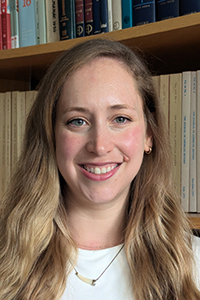
Meghan Woolley
Assistant Professor - Medieval Europe
Office: LA 335
Education
Ph.D. Duke University
M.Litt. The University of St Andrews
B.A. Hamilton College
Research Interests
Medieval Europe, Anglo-Norman and Angevin England, the history of emotions, love and friendship,
cultural history, legal history
Publications
“Better than Just Fine: Combining Final Concords with Documentary and Symbolic Practices,” The Journal of
Legal History 44.3 (2023): 225-255.
“Anger Management: Modeling Christian Kingship in Peter of Blois’s Dialogus,” The Haskins Society Journal 32
(2020): 185-203.
Public-Facing Articles
“The Charters in the Margin of Matthew Paris’s Chronica Maiora,” Medievalists.net, 2022.
“True Knights Kiss their Friends,” Culturico, 2021.
“The Language of Love in a 12th-Century English Law Book,” Pysche, 2020.
Courses Taught
HIST 1101: World History I
HIST 4431: Love in Medieval Europe
Adjunct Instructors
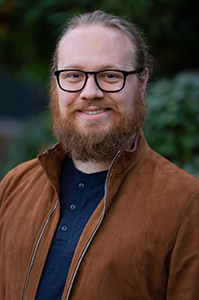
Christopher Halsted
.jpg)
Kristine Hunt
Education
MA Idaho State University
Education
MA, Idaho State University, Historical Resources Management
BA, University of California, Irvine, English
Research Interests
Race and gender in US history; Holocaust studies; material culture and historical architecture; the intersection of history and genealogy
Publications
Master’s thesis, “‘Everybody Has a Bungalow Hope’: Housing and Occupation in the US West, 1920,” 2017
“‘Our Bungalow Dreams’: Housing and Occupation in the US West, 1920,” Yearbook of the Association of Pacific Coast Geographers Volume 78 (2016).
Cartography and Digital Projects
“The Holocaust Across the Globe: Cartography, Genealogy, History,” an ArcGIS StoryMap, in progress
Cartographer, “Lands of Hawise of Bacqueville in Dorset, 1086,” and “11th Century Donations to the Abbey of Montivilliers by Pays de Caux Property Holders” maps for Dr. Stephanie Christelow, “French Women in Early Norman England: The Case of Hawise of Bacqueville,” presentation at Conquest: 1016, 1066 Conference, University of Oxford, July 2016
Cartographer, “Bruno Richard Hauptmann’s Wartime and Postwar Travels, 1918–1923,” in Erika Kuhlman, The International Migration of German Great War Veterans: Emotion, Transnational Identity, and Loyalty to the Nation, 1914–1942, Palgrave, 2016.
Courses Taught
HIST 1101, History in Film
HIST 1111, US History to 1865
HIST 1118, US History and Culture
HIST 2201, Women in US History
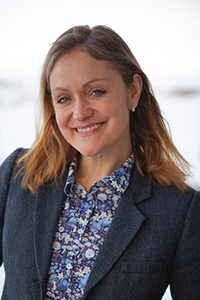
Elizabeth Mawlam
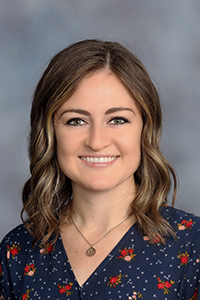
Felicia Zaleski
Emeritus Faculty
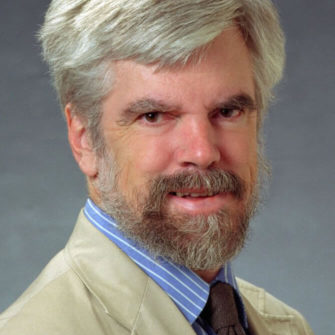
Allan Christelow
Professor
Allan Christelow is a specialist in the history of Islam in North and West Africa. His field experience began as a high school English teacher in the North African country of Algeria in the early 1970s. He completed a doctoral dissertation on the history of Muslim courts in Algeria at the University of Michigan in 1977, and then spent five years teaching at Bayero University in Kano, the largest city in predominantly Muslim northern Nigeria, in West Africa. Christelow has published books on the application of Islamic law in both Algeria and Nigeria, and he has delivered invited presentations at many major U.S. universities, including Stanford, Notre Dame, Yale, and Northwestern, and in nine different countries, including Holland, Israel, Algeria, and South Africa. He has taught at Idaho State University since 1983. In 2011, the University Press of Florida published his book Algerians without Borders, which is a study of the experience of Algerian emigrants and refugees from the eighteenth century to the present.
PUBLICATIONS AND PAPERS
Books
2011 Algerians without Borders: the Making of a Global Frontier Society, University Press of Florida, 2011
1994 Thus ruled Emir ‘Abbas: Selected Cases from the Records of the Emir of Kano’s
Judicial Council, Michigan State University Press (Runner-up, African Studies
Association Text Prize, 1995)
1985 Muslim Law Courts and the French Colonial State in Algeria, Princeton University Press
-summarized in Arabic, al-Masadir, 11:1, 2005, pp. 319-329
Edited Works
1997 Citizenship and Cultural Identity, an issue of the Idaho State University
Humanities Journal, Rendezvous
Articles
2009 “Persistence and Transformation in the Politics of Sharia, 1947-2003: in Search of
an Explanatory Framework.” In Richard Roberts, Shamil Jeppie, and Ebrahim
Moosa, eds. Muslim Family Law in Colonial and Postcolonial Africa
2006 Introduction to Nour Eddine Boukrouh, Islam sans islamisme: vie et pensée de
Malek Bennabi, Algiers: Éditions Samar. (also to be published in Arabic)
“The Western Mediterranean in an American Mirror: The Algerine Spy in
Pennsylvania,” The Maghreb Review, 31:1-3 (2006), pp. 80-102.
2005 “Land, Commerce, and Royal Authority in Kano.” In Donald Crummey, ed., Land,
State and Society in the History of Sudanic Africa, Red Sea Press.
Articles on Algeria in Kevin Shillington, ed., Encyclopedia of African History,
New York: Fitzroy Dearborn.
2004 “Mahkama-Algeria,” in Encyclopaedia of Islam, Leiden: E.J. Brill, Supplement
volume, fascicle 7-8, pp. 557-559.
2004 “Bashir Ibrahimi and the Islamic Encounter with European Secular and Religious
Faiths,” The Maghreb Review, 29: 1-4 (2004). Also published in collection of
articles in Arabic on Ibrahimi, Beirut: Dar al Gharb al-Islami, 2005.
2002 “Islamic Law and Judicial Practice in Nigeria–an Historical perspective,” Journal
of Muslim Minority Affairs, 22:1, pp. 185-204
2001 “Recollecting Algerian Cultural History: the Work of Bilqasim Sa’adallah,” Institute
for the Study of Islam in the Modern World Newsletter, 5, May 2000, pp. 31-32;
reprinted in al-Zahra (Monthly Newsletter of Al al-Bayt University, Mofraq,
Jordan), Vol 8, No. 33, December 2001, pp. 33-35;
--translated into Arabic in al-Basa’ir (Algiers), No. 78, 7-14 January 2002;
2000 “The Mosque at the Edge of the Plaza: Islam in the Algerian Colonial City,” The
Maghreb Review, 25: 3-4, pp. 289-319.
“Mai Tatsine” in Encyclopaedia of Islam, Leiden: E. J. Brill
“Algeria: Arabism and Islamism,” “Algeria: Muslim Population, 1871-1954,”
“Algeria: Islamic Ideas and Movements in Colonial Algeria,” “Algiers,” “Algeria:
Islamic Salvation Front and Civil War,” “Islamic Law, Post-colonial Africa” for
Encyclopedia of African History, London: Fitzroy Dearborn Publishers
“Re-envisioning Algerian Cultural History in the Imperial Age,” The Maghreb
1999 “Louis Massignon et les intellectuels musulmans algériens: domination coloniale
et absence de la confiance,” in Jacques Keryell, ed., Louis Massignon au coeur
de notre temps, Paris: Éditions Karthala.
“Islamic law in Africa,” in Nehemia Levtzion and Randall Pouwels, eds., History of
Islam in Africa, Ohio University Press.
1997 “In Search of One Word’s Meaning: Zaman in Early Twentieth Century Kano.”
History in Africa., 24, pp. 95-115.
1996 “Algerian Dimensions of France’s Middle East Policy, 1916,” in Leon Carl Brown
and Matthew Gordon, eds., Franco-Arab Encounters, American University of
Beirut Press.
1994 “Maitatsine” and “Mahkama” Encyclopedia of Modern Islam. New York: Oxford
University Press.
1992 “Malik Bennabi, an Islamic Humanist in the Twentieth Century,” The Maghreb
Review 1-2, pp. 69-83.
“The Muslim Judge and Municipal Politics in Colonial Algeria and Senegal,”
(revised version) in Juan R. I. Cole, editor, Comparing Muslim Societies:
Knowledge and the State in a World Civilization, University of Michigan Press,
1992, pp. 133-162.
1991 “Legal Process and Social Order in Early Twentieth Century Kano, Nigeria,” Law
in Colonial Africa, edited by Richard Roberts and Kristin Mann, London,
Heinemann/Currey, 1991.
“Women and the Law in Early Twentieth Century Kano,” in Catherine Coles and
Beverly Mack, eds., Hausa Women in the Twentieth Century, University of
Wisconsin Press, 1991, pp. 130-144.
1990 “Oral, Manuscript, and Printed Expressions of Historical Consciousness in
Algeria,” Africana Journal, 15: 258-275.
1987 “Political Ends and Means of Transport in the Colonial North African Pilgrimage,”
The Maghreb Review, 12: 3-4, pp. ;84-89.
“Ritual, Culture, and the Politics of Islamic Reformism in Algeria,” Middle Eastern
Studies 23: 2, pp. 254-273.
“Property and Theft in Kano at the Dawn of the Groundnut Boom, 1912-1914,”
International Journal of African Historical Studies, 20: 2, pp. 225-243.
1986 “Slavery in Kano, 1913-14–Evidence from the Judicial Records,” African
Economic History, pp. 58-74.
1985 “Algerian Interpreters and the French Colonial Adventure in Sub-Saharan Africa,”
The Maghreb Review, 10: 4-6, pp. 101-106.
“Al-Makki Ben Badis,” Parcours: l’Algerie, les homes, et l’histoire, No. 5, Automne
1985, pp. 14-21.
“Records of the Emir’s and Alkali’s Courts in Kano, Nigeria,” Fontes Historiae
Africanae, Nos. 9/10, pp. 35-40.
“The ‘Yan Tatsine Distrubances in Kano, a Search for Perspective,” The Muslim
World, 75: 2, pp. 69-84.
“Religious Protest and Dissent in Northern Nigeria: from Mahdism to Quranic
Integralism,” Journal, Institute of Muslim Minority Affairs, 6: 2, pp. 375-393.
1983 “Algerian Islam in a Time of Transition, c.1880 - c.1930,” The Maghreb Review.
8: 5-6,pp. 124-130.
1982 “Intellectual History in a Culture Under Siege: Algerian Muslim Thought in the
Late Nineteenth Century,” Middle Eastern Studies, 18:4, pp. 387-399.
“The Muslim Judge and Municipal Politics in Colonial Algeria and Senegal,”
Comparative Studies in Society and History, 24:1, pp. 3-24.
1981 “Career Patterns of Algerian Muslim Magistrates in the Late Nineteenth Century,”
The Maghreb Review, 6:1-2, pp. 36-39.
“Al-Makki Ben Badis wa ba’d nawahi al-haraka al-wataniyya al-jaza’iriyya fi-l-qarn
al-tasi’ ‘ashhar” (Al-Makki Ben Badis and Some Aspects of the Beginning of the
National Movement in Algeria), Al-Thaqafa, Vol. 22, No. 61, pp. 41-51.
1980 “Saintly Descent and Worldly Affairs in Mid-Nineteenth Century Mascara,
Algeria,” International Journal of Middle East Studies, 12:2, pp. 139-155.
1979 “An Inquiry into the Algerian Medjles Crisis of 1858,” Revue d’histoire
maghrebine, 15-16, pp. 35-51.
1978 “Islamic Legal Documents as a Source for the Study of Colonial Algeria,” Middle
East Studies Association Bulletin, 12:3, pp. 29-34.
“Hawl bidaya al-nahda al-jaza’iriyya” katib li ‘Abd al-Qadir al-Majjawi”
(Concerning the Begining of the Alberian Cultural Revival: a Pamphlet by ‘Abd
al-Qadir al-Majjawi), Al-Thaqafa, Vol 9, No. 47, pp. 55-64.
Conferences, Guest Lectures
2008 “L’image britannique d’Abdel Kader: le Culte de l’Héros et les intérêts impériaux.”
Conference on Abdel Kader, Oran, Algeria, 26-28 November
2005 “Toward an understanding of black communities in Algeria’s changing
social patterns,” African/Middle East Studies Association conference,
Washington, DC. November 19.
“The Western Mediterranean in an American Mirror: Peter Markoe’s
The Algerine Spy in Pennsylvania,” Maghreb Review conference, Mansfield
College, Oxford, 9 July
“Malek Bennabi et deux visions mondiales anglophones en 1954: les cas
de Arnold Toynbee et Wendell Willkie,” Conference on Malek Bennabi, Algiers
22 September
2003 “Malek Bennabi et les frontières culturelles de l’ère globale,” International
Colloquium on the Thought of Malek Bennabi, Algiers, 18-20-October
“Bashir Ibrahimi and the Islamic Encounter with European Secular and Religious
Faiths,” Maghreb Review Conference: “The Faith of the Other,” Mansfield
College, Oxford, 6-8 July.
2002 “Persistence and Transformation in the Politics of Sharia, Nigeria, 1958-2002: in
Search of an Explanatory Framework,” Conference on Muslim Family Law in
Post-Colonial Africa, Centre for Contemporary Islam, University of Cape Town,
11-14 March.
2001 “Islamic Judicial Councils and their Sociopolitical Contexts: a Trans-Saharan
Comparison,” Conference on the Application of Islamic law in Courts,” Institute
for the Study of Islam in the Modern World, Leiden, 26 October.
2000 “Islamic Law and Judicial Practice in Nigeria–an Historical Perspective,” African
Studies Association, Nashville, November.
1998 “Algerian Islam in an Age of Empire, 1880-1920,” African Studies Association,
Chicago, 31 October.
“The Algerian Crisis: Historical Origins, Future Alternatives,” Chicago Council on
Foreign Relations, March 16; also in depth interview, WBEZ–Chicago Public
1997 “Louis Massignon and Algerian Muslim Intellectuals: Colonial Domination and the
Problem of Trust.” Conference on Louis Massignon: The Vocation of a Scholar.
University of Notre Dame. 3 October.
“Islamic law in Africa.” Conference on Writing the History of Islam in Africa. Van
Leer Institute, Jerusalem, 18 June.
“The Mosque at the Edge of the Plaza: Sacred Places, Urban Space, and the
Colonial Heritage in Algeria.” Mellon Colloquium, Northwestern University, 8
1996 “Citizenship in a Frontier Society: Muslims, Jews, and New French in Colonial
Algeria,” Rocky Mountain World History Association, Salt Lake City, 1 November.
Published in Rendezvous (see above, edited works).
1995 “Islamic Law in Africa–basic themes,” Cambridge History of Islam in Africa panel,
African Studies Association, Orlando, 4 November.
1993 “Presenting the Nigerian Shari’a Question; Brief Reflections on Bappa Mahmud’s
Brief History, Northwestern University, African Humanities Center, Roundtable
on Nigerian Historiography, 6 May.
1992 “Mosques, Communities, and the State in Algeria: a Long Term Perspective.”
Islam and Nationhood Conference. Yale University. 12-14 November.
“The Art of Biography in Postrevolutionary Algeria,” Maghreb Review
Conference, London, July 10.
1991 “1492 and the Islamic World,” Phi Alpha Theta Northwest Regional Conference,
Sun Valley, Idaho, May.
1991 “The Concept of Zaman in Early Twentieth Century Kano,” African studies
Association, St. Louis, November.
1990 Chair and commentator for panel on North African history at Pacific Coast
Branch of AHA, 10 August.
1989 Conference to plan volume of comparative studies on the Muslim world for
Comparative Studies in Society and History, Ann Arbor, October.
“Islamic Reformism in Colonial Algeria from 1900 to the Outbreak of the
Revolution” (lecture); and “Islamic Legal Records and Social History in Algeria
and Northern Nigeria” (seminar), at the University of Arizona, Tuscon, 11
1988 “Slavery, Law, and the Patriarchal Order in Northern Nigeria,” African Studies
Association, Chicago, 29 October.
1987 “Orientalists, Islam, and Colonial Administration in the Maghrib and Northern
Nigeria,” African Studies Association, Denver, 22 November.
“Marriage, Murder and the Politics of Islamic Law Codification in Colonial Africa,”
at “New Perspectives on Colonial Africa,” Spring Symposium, University of
Illinois, Urbana, 29-31 March.
“Political Strategies, Legal Sensibilities and Islamic Homicide Law in Northern
Nigeria,” guest lecture at Stanford University, 5 March.
1986 Co-chair of panel on “Approaches to the Social History of Kano;” paper–“Political
Arena and Moral Theater: the Emir of Kano’s Judicial Council”–at African Studies
Association Conference, Madison, Wisconsin, 30 October.
Comment, Symposium on Religion in Africa, Brigham Young University, Provo,
Utah, 23-25 October.
“History as Future: prophetic discourse and historical consciousness in colonial
Algeria,” Colloquium of Sonderforschungsbereich 214 on “Identity in Africa,”
University of Bayreuth, 17-18 July.
“Moyens de Transport et mobiles politiques dans le pélerinage nord-africain
colonial,” Maghreb Review Conference on Trade, Transport and Communication
in the Maghreb, Collège de France, Paris, 7-8 July.
1985 “Clio and Her Wayward Tropical Offspring: the Discipline of History and the
Specialties of Area Studies,” at Phi Alpha Theta History Honor Society National
Conference, New York, 27-29 December.
“Property and Theft in Kano on the Eve of the Groundnut Boom,” at African
Studies Association, Middle East Studies Association Conference, New Orleans,
22-25 November.
“The Transformation of the Muslim Court System in Colonial Algeria: Reflections
on the Concept of Autonomy,” at Colloquium on Social and Historical Contexts
of Islamic Law, University of Exeter, England, 27-29 September. Published in
Social and Historical Contexts of Islamic Law, ed. Aziz al-Azmeh, London,
Croom Helm, 1987.
1984 Comment, Panel on “Themes in Sudanese History,” African Studies Association
Conference, Los Angeles, 26 October.
“Three Islamic Voices in Contemporary Nigeria,” in Conference on Multiple
Voices in Contemporary Islam, Social Science Research Council, New York, 25-
27 May. Published in Islam and the Political Economy of Meaning, ed.
William Roff, University of California Press, 1987, pp. 226-253.
“Religious Protest and Dissent in Northern Nigeria: from Mahdism to Quaranic
Integralism,” at Symposium on Islam in Twentieth Century Africa, University of
Illinois, 2-3 April. Published in Journal, Institute of Muslim Minority Affairs, 6:2
(July 1985) pp. 375-393.
“The Muslim Courts in Colonial Nigeria under British Overrule,” at Conference on
Islam in Africa: the Changing Role of the ‘Ulama, Northwestern University, 28-31
1982 “Contestation et répression dans les communes de pleine exercise pendant la
crise de 1881,” at Colloquium on Nineteenth Century Resistance Movements,
Algiers, 17 February–1 March 1982.
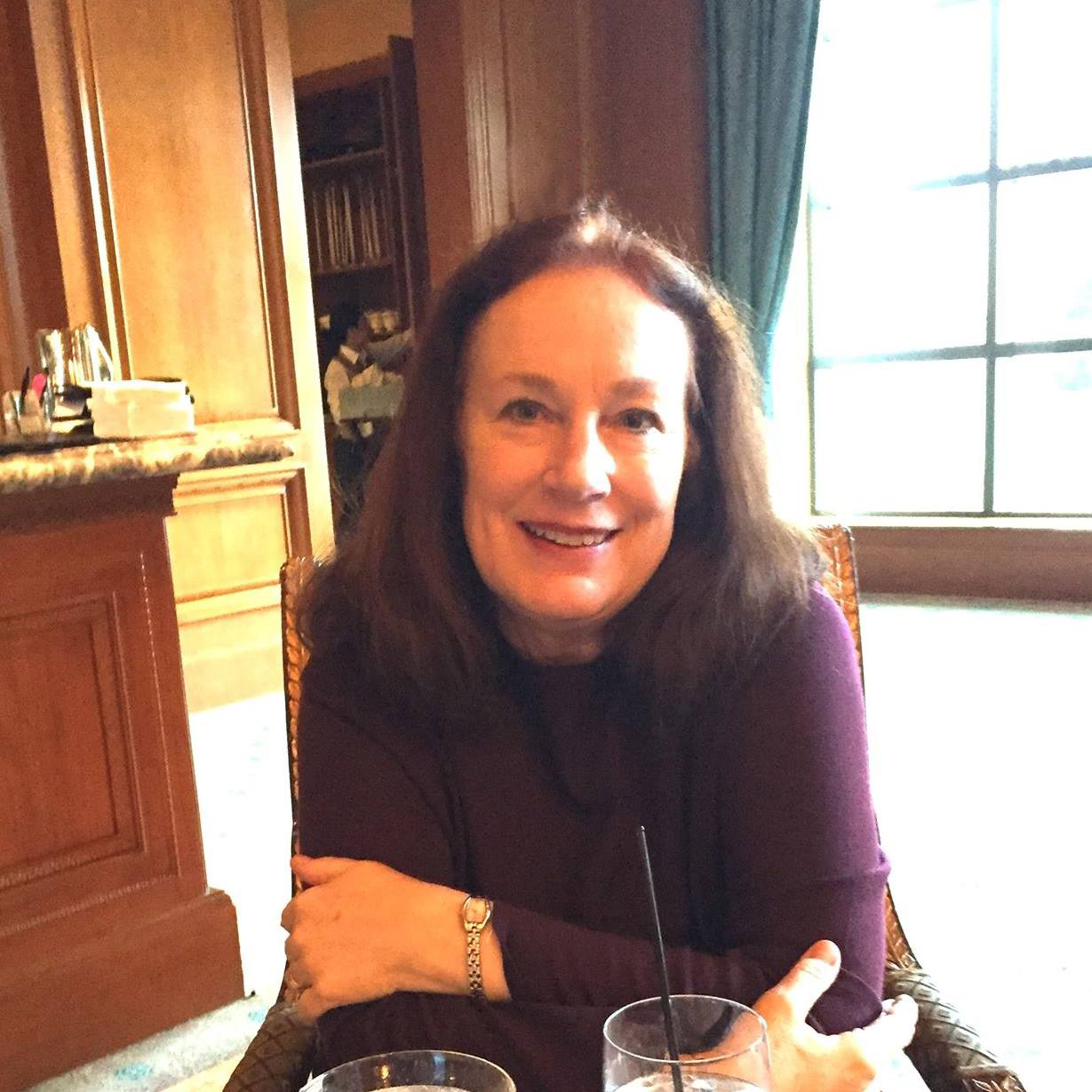
Stephanie Mooers Christelow
Professor - Medieval History, European History; Historical geography
BIOGRAPHY
RESEARCH INTERESTS
- Landscape Studies
- Social Networks
- Medieval Courts and Elites
AFFILIATIONS
BOOKS, in progress
Elite Patronage and the Formation of Social Networks in Anglo-Norman England 1066-1135: Land and the Political Process. In progress.
Landscapes of Poverty in Early Norman England, a book-length manuscript, three chapters of which are complete, investigating social and economic conditions in England after the Norman Conquest of 1066.
PUBLISHED BOOKS OR JOURNALS EDITED AND INTRODUCED
Remembrances: The Processes and Expressions of Memory, editor, Rendevous, 33:2 (Spring, 1999)
Kings, Saints and Parliaments co-edited with Sears McGee, RaGena DeAragon and Sandra
Piercy (Kendall Hunt: Dubuque, Iowa, 1997)
PUBLISHED ARTICLES IN PEER-REVIEWED ACADEMIC VENUES
As Stephanie Mooers Christelow:
“French Women in Early Norman England: The Case of Hawise of Bacqueville,” Conquests in Eleventh-Century England: 1016, 1066, edited by Laura Ashe and Emily Joan Ward, 242-262 (The Boydell Press, 2020)
“Anglo-Norman Administrations and their Historians,” History Compass, vol. 9 issue 7, 525-536; http://onlinelibrary.wiley.com/doi/10.1111/j.1478-0542.2011.00786.x/abstract
“The Fiscal Management of England under Henry,” Henry I and the Anglo-Norman World, edited by Donald Fleming and Janet M. Pope (Woodbridge, Suffolk, 2007), 159-182.
“Names and Ethnicity in Anglo-Norman England,” Studies on the Personal Name in Later Medieval England and Wales, edited by Dave Postles and Joel T. Rosenthal (SUNY Stony Brook) and David Postles (University of Leicester, UK), (Studies in Medieval Culture XLIV, Medieval Institute Publications, Western Michigan University, 2006), 341-371.
“Chancellors and Curial Bishops: Ecclesiastical Promotions and Power in Anglo-Norman England, Anglo-Norman Studies, XXII (2000), 49-69.
Review article of K. S. B. Keats-Rohan, ed. Family Trees and the Roots of Politics (Woodbridge, Suffolk, 1997), Medieval Prosopography, 20, (1999), 218-224.
“The Royal Love in Anglo-Norman England: Fiscal or Courtly Concept,” Haskins Society Journal (Woodbridge, Suffolk, 1998), 37-52.
"Eleanor of Aquitaine (circa 1122-1204)," Medieval England: An Encyclopedia, ed. Joel T. Rosenthal (Garland Press, 1998), 273.
"Godwin, earl of Wessex," Ibid., 320.
"Harold Godwinson, king of England January to October 1066," Ibid., 340-1.
"The Division of Inheritance and the Provision of Non-Inheriting Offspring among the Anglo-Norman Elite," Medieval Prosopography 17 (Autumn 1996) 3-44.
"A Moveable Feast? Itineration and the Centralization of Government under Henry I,” Albion 28 (Summer 1996), 187-228.
"All the King's Men: Prosopography and the Santa Barbara School," Medieval Posopography ll (Spring 1990), 1-15.
As Stephanie (L.) Mooers:
"A Reevaluation of Royal Justice under Henry I of England," American Historical Review, 93 (April 1988), 340-358.
"Recipients of Royal Patronage," reprinted from "Patronage in the Pipe Roll of 1130," (below) in Wilkinson and Cantrell, The Normans in Britain: Documents and Debates, (London, 1987).
"Networks of Power in Anglo-Norman England," Medieval Prosopography (Autumn 1986), 25-54.
"Patronage in the Pipe Roll of 1130," Speculum, 59 (April 1984), 282-307.
"Familial Clout and Financial Gain in Henry I's Later Reign," Albion, 14 (Winter 1982), 268-291.
"Backers and Stabbers: Problems of Loyalty in Robert Curthose's Entourage," Journal of British
Studies, 21 (Fall 1981), 1-17.
PUBLICATIONS, BOOK REVIEWS
Review of William M. Aird, Robert Curthose, Duke of Normandy: 1050-1134 (Woodbridge: The
Boydell Press, 2008), H-France, Vol. 12 (2012); h-france.net/vol12reviews/vol12no104christelow.pdf
Review of K. S. B. Keats-Rohan, Continental Origins of English Landholders, 1066-1166 (COEL),
data base for Medieval Prosopography, 28 (2007)
Review of K. S. B. Keats-Rohan, Domesday Descendants (Woodbridge, 2003) in The Medieval
Review <TMR‑L@wmich.edu> (18 Sep 2003).
Review of Graeme J. White, Restoration and Reform, 1153-1165: Recovery from Civil War in
England (Cambridge: University Press, 2000), Comparative Studies in Society andHistory,
Volume 44:03 (July, 2002) 630-632.
Review of J. C. Holt, Colonial England 1066-1215 (London, 1997), Albion 30:4 (Winter, 1998),
663-4.
Review of Ann Williams, The English and the Norman Conquest (Woodbridge, Suffolk, 1995),
Speculum, (January, 1998), 628-629.
Review of Emilie Amt, The Accession of Henry II in England: Royal GovernmentRestored 1149-1159
(Rochester, NY, 1993), Speculum 72 (January 1997), 101-4.
Review of Richard Mortimer, Angevin England, 1154-1258 (Oxford, 1994), Albion 28 (Spring,
1996), 78-9.
Review of Hugh M. Thomas, Vassals, Heiresses, Crusaders, and Thugs (Philadelphia, 1992), Speculum 70 (January 1995), 210-213.
Review of Michael A. Hicks, ed., Profit, Piety and the Professions in Later Medieval England
(Gloucester, 1990), in the Journal of the Rocky Mountain Medieval & Renaissance Association,
vol 13 (1992).
Review of Judith A. Green, English Sheriffs to 1154, Public Record Office Handbooks, No. 24
(HMSO, 1990), Medieval Prosopography, 12 (Autumn 1991), 123-127.
Review of Charlotte A. Newman, The Anglo-Norman Nobility in the Reign of Henry I
(Pennsylvania, 1988), Albion, 22 (Spring, 1990), 104-5.
Review of Peter W. Edbury and John Gordon Rowe, William of Tyre (Cambridge, 1988),
Speculum, 65 (July 1990), 658-659.
Review of Sally N. Vaughn, Anselm of Bec and Robert of Meulan: The Innocence of the Dove and the
Wisdom of the Serpent (Berkeley, 1987), Speculum, 65 (January 1990), 235-237.
Review of W. L. Warren, The Governance of Norman and Angevin England 1066-1271 (Stanford,
1987), Speculum 64 (October 1989), 1049-1051.
Review of Cecil R. Humphery-Smith, Anglo-Norman Armory Two (The Institute of Heraldic and
Genealogical Studies, Canterbury, 1984), Speculum, 64 (January 1989), 178-9.
Review of Judith A. Green, The Government of England Under Henry I (Cambridge, 1986), Albion,
19 (Fall 1987), 395-6.
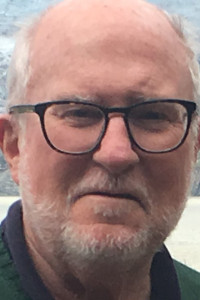
Ronald L. Hatzenbuehler
Earning M.A. and Ph.D. degrees in history at Kent State University, Ron Hatzenbuehler taught at ISU from 1972 until his retirement in 2013 (emeritus professor, 2014). His books include: Congress Declares War: Rhetoric, Leadership and Partisanship in the Early Republic (1983 [with Robert L. Ivie]); ‘I Tremble for My Country’: Thomas Jefferson and the Virginia Gentry (2006) and Jefferson, Lincoln, and the Unfinished Work of the Nation (2016). In 1994, he was honored as ISU’s Distinguished Teacher, and in 2008 he received the Outstanding Achievement in the Humanities Award, given annually by the Idaho Humanities Council. He lives in Pocatello, Idaho, with his wife Linda.
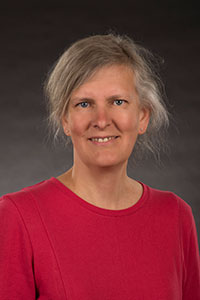
Erika Kuhlman
Professor - American Studies, gender studies; history of sound
Education
Ph.D., Washington State University
Books
The International Migration of German Great War Veterans. New York: Palgrave Macmillan, 2016.
Of Little Comfort: War Widows, Fallen Soldiers, and the Remaking of the Nation after the Great War. New York: NYU Press, 2012.
Reconstructing Patriarchy after the Great War: Women, Gender, and Postwar Reconciliation Between Nations. New York: Palgrave Macmillan, 2008.
Petticoats and White Feathers: Gender Conformity, Race, the Progressive Peace Movement, and the Debate Over War, 1895-1919. Westport, CT: Greenwood Press, 1997.
A to Z of Women in World History. New York: Facts on File.
Articles and Book Chapters
“Gender and Resistance.” In Gender and the Great War, edited by Susan Grayzel and Tammy Proctor. New York: Oxford University Press, 2017.
“Anonymity, Transnational Identity, and A German Deserter’s War Experience.” In Modernism and War, edited by Nanette Norris. Fairleigh Dickinson University Press, 2016.
"American Doughboys and German Fräuleins: Sexuality, Patriarchy, and Privilege in the American-Occupied Rhineland, 1918-1923." Journal of Military History 71 (October 2007): 1077-1106.
Awards
Dr. Kuhlman has twice been named an ISU Outstanding Researcher.
Courses Taught
HIST 1118 U.S. History and Culture
HIST 2201 Women in U.S. History
HIST 3308 Industrialization and Reform in the United States
HIST 4425 Women in the North American West
HIST 4437 Families in Former Times
HIST 4439 Women in History
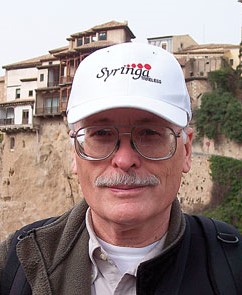
J. B. Owens
Emeritus Faculty
B. “Jack” Owens received his PhD in History from the University of Wisconsin, Madison (1972). He studied with Robert Kingdon and Domenico Sella, who introduced him to the research questions and methodologies of the French Annales School (l’École des Annales). The movement takes its name from the first version of its signature journal, Annales d'histoire économique et sociale, founded at the Université de Strasbourg in 1929 by two young professors, Marc Bloch (1886-murdered 1944) and Lucien Febvre (1878-1956). During the first semester of graduate school (fall 1966), Owens read the emblematic Annales work, Fernand Braudel’s La Méditerranée et le monde méditerranéen à l'époque de Philippe II (1949; 1,160 pages of French!). Quickly recognized as a serious graduate student, Owens receive Ford and Fulbright grants to continue his dissertation research in Spain (Toledo and Granada). He selected East Asian history as his PhD minor, which afforded him the opportunity to discover the second continuing influence on his research and teaching, Joseph R. Levenson’s Confucian China and Its Modern Fate: A Trilogy (1968).
Institutional and global financial crises wiped out Owens’s first two tenure-track positions at New York University (1971-73) and Lehigh University (1973-75). Therefore, he and his growing family arrived battered and disoriented in Pocatello in July 1975, and he spent the rest of his academic career at ISU, where he taught European, Latin American, and World history.
Owens received a large research grant from the U.S.-Spanish Joint Committee for Educational and Cultural Affairs (the successor to Spanish Fulbright research grants) and spent three semesters (1978-79) in Murcia, Spain. The Universidad de Murcia published his first book, Rebelión, monarquía y oligarquía murciana en la época de Carlos V (1980), and a companion monograph on the members of Murcia’s city council between 1500 CE and 1650 (1981). Owens is currently substantially revising the book and translating it into English.
While in Murcia, Owens headed the history department of the regional research institute, which eventually became the regional section of the Fundación Pablo Iglesias of Spain’s major socialist party (Partido Socialista Obrero Español, PSOE). He organized group research on the workers’ movement in the transition from fascism to a parliamentary democracy, publishing two articles (in English) on the Spanish Communist Party (PCE). Because the institute’s director, a Senator, served on the Senate committee on the drafting of the 1978 constitution, Owens followed the process closely. This experience, and subsequent research in the 1990s, provided the basis for his world history course on establishing countries and other political units on the basis of a written constitution (late 18th century to 1996).
Back in Pocatello for the fall semester 1979, Owens established a plan for a special library collection named for his predecessor (and officemate), which in 1981 became the Glenn E. Tyler Collection in the History and Philosophy of Medicine and Science. Owens served as (uncompensated) founding director until 2008. Upon his death in August 1987, Tyler left his personal library to ISU; it consisted of about 22,000 volumes, including a rich collection of rare books, which became the basis of the Oboler Library’s collection of 16th-18th century works. Tyler’s bequest increased the library’s total monograph collection by about 14%. Because the library had no budget to process so large a gift, Owens spent well over 100 volunteer hours sorting the books in the library’s basement and wheeling them on carts to the acquisition department. For this contribution to the university, Owens received a special commendation from the Faculty Senate in 1989.
In 1991, Owens served on a department committee to create a graduate program in comparative and world history, which the administration would never send to the State Board. However, Owens increased his activities within world and world systems research and teaching organizations, and as a result, he created an upper-division world history course on the planetary Hispanic Monarchy, which included the global domains of the Crown of Portugal, of the First Global Age (1400-1800). He applied for and received a six-week grant from the National Endowment for the Humanities (NEH) to participate in a summer seminar in 1995 at the University of California, Santa Cruz, “Rethinking Europe/Rethinking World History, 1500-1800.” While there, he also wrote a draft of a future book (published in 2005) and created the design for a future multidisciplinary research project (funded in 2007).
Ronald Hatzenbuehler introduced Owens to information management using computers, and he presented his first paper in this area in 1986. In 1994 (pre-browser), Owens expanded this research to distance learning, work for which he received in 1996, the “Award for Innovative Excellence in Teaching, Learning, and Technology” from a national organization. From 1997 to 1999, he coordinated an ISU interdisciplinary project, funded by the State Board, involving faculty members from anthropology, health professions, and history to develop computer-mediated, distance education programs.
In the Annales vision, to achieve the comprehensive (“total”) history for which the movement called in the 1960s, a researcher had to integrate information about the economic, social, and cultural environments, and Owens felt frustrated because he did not know how to do that. In spring 1998, colleagues in historical geography, members of an online research discussion group, recommended that he explore geographic information systems (GIS) as a possible method. ISU had established a GIS center in January of that year, and Owens participated in his first GIS workshops in June. Over the summer, he wrote his first GIS paper, entitled “Where in the World’s History is Murcia?”, turning it into a successful funding proposal, which took him to Spain during the spring semester 1999.
In the Crown archive of Castile, in the castle of Simancas, Owens discovered some of the reports of a secret 1565 investigation into smuggling networks along the border between the Kingdom of Castile and that of Valencia (the latter was a separate country), much of it taking place within the Kingdom of Murcia (roughly the territory of the modern provinces of Albacete and Murcia). At the urging of ISU’s research office, Owens obtained a senior NEH summer research grant to pursue additional sources about these smuggling operations. He returned to Pocatello in August 2000 with approximately 3,000 pages of documents and the perfect research project for displaying the capabilities of GIS. Owens probably already held the university record for the greatest number of research grants obtained from ISU research committees, but based on this early success, the faculty research committee provided him with a series of timely grants, which allowed him to extend this work. At the centennial graduation ceremony in 2002, Owens received the Distinguished Researcher award.
Owens worked with department colleagues to design and begin the first GIS-based graduate program in History anywhere in the world (2002-2008). They addressed History’s vulnerabilities, which could (and did) lead to cuts in university funding and of entire history departments throughout the U.S. and the World. Timely funding from ISU’s office of research allowed Owens to collaborate with the multidisciplinary Electronic Cultural Atlas Initiative (ECAI), which was initially founded to use GIS to organize information on Buddhism throughout Asia before becoming a global project.
This strong institutional support allowed Owens to obtain a full NEH fellowship (2004-2005) and the only fellowship from the John Simon Guggenheim Memorial Foundation ever given to a faculty member at any of Idaho’s universities by that time (2005-2006). In addition to many articles, he published another book, ”By My Absolute Royal Authority”: Justice and the Castilian Commonwealth at the Beginning of the First Global Age, in 2005.
Owens returned to Pocatello in late April 2006 and discovered that the European Science Foundation (ESF) had issued a call for multinational, multidisciplinary funding proposals for a research program named “The Evolution of Cooperation and Trading” (TECT). Because the U.S. National Science Foundation (NSF) supported the program, Owens could apply. In the end, he created the largest project, among the successful five, in number of collaborating researchers and academic disciplines represented, with its strength in History, Geographic Information Systems, and Mathematical Modeling (of complex, nonlinear systems): it is known as the DynCoopNet Project (“Dynamic Complexity of Cooperation-Based Self-Organizing Commercial Networks in the First Global Age [1400-1800]”). Suddenly, much of Owens’s research and teaching came together to permit him to craft the complicated ESF proposal in only five weeks; all of the other successful project directors worked on theirs for months. Most importantly, the submission of the proposal convinced ISU’s administration to grant the history department a new position, which was necessary for the start of the GIS-based graduate program, a component of DynCoopNet.
Owens’s innovative ideas attracted the attention of NSF’s director, who saw the DynCoopNet Project as a manifestation of what he called “transformative research” (tr). As a result, the agency encouraged Owens to submit a funding proposal in one of the tr categories. Working with geographer May Yuan, he submitted “Understanding social networks within complex, nonlinear systems: geographically-integrated history and dynamics GIS” (SOCNET). The NSF director’s Office of Cyberinfrastructure (OCI) administered the grant as part of the agency’s tr Cyber-Enabled Discovery and Innovation (CDI) program. One major SOCNET product is A Geographic Information Systems (GIS) Training Manual for Historians and Historical Social Scientists (plus exercise data sets and free GIS software), which has continued to be downloaded by researchers and students in countries around the world.
Owens’s NSF award for the DynCoopNet Project was $394,000 for three years (2007-2010), the largest amount ever given to an individual historian. The total SOCNET grant was $1,761,897 (for four years, extended to five; 2009-2014), the largest NSF award ever given to a project headed by a historian. Most importantly, in the midst of an ISU budget crisis, these large grants brought “Indirect Costs” money to the history department to support the research-related travel and research of Owens’s departmental colleagues. During one academic year in which ISU budgeted for all history travel only $1,800, Owens’s NSF grants provided about $28,000 and probably saved at least one departmental teaching position.
Starting in 2015, Owens was developing another NSF funding proposal, but it was delayed by health problems and checked permanently by the pandemic because he could not travel sufficiently to recruit for the necessary multidisciplinary team. Thus, he published elements of the research design as “If I Forget Thee, O Murcia” and (with Vitit Kantabutra of ISU’s engineering program) “A Research Design for a World History of the World.” These and other articles related to his research career are available on Owens’s Academia.edu page (http://idahostate.academia.edu/JBJackOwens). A long (over 20,000 words) book chapter appeared in April 2021 in Oxford, England, with the title “Markets in the Shadows, Trade Diasporas, and Self-Organizing Trading / Smuggling Networks,” which represents his continuing work on 16th-century smuggling. Owens is currently writing an article for the Italian historical journal Storica about the emergence in the 1560s of cooperation among elite families who controlled a hugely disproportionate share of the economic and political resources of the Castilian City and Kingdom of Murcia.
Owens and his wife, Grace, are long-time human rights activists. Indeed, they met at Oberlin College, which opened in 1832 as the first higher-education institution to admit women and people of color on the same basis as white males. Starting with the abolition movement, the faculty and students have long been recognized for their role in struggles for civil and human rights. Martin Luther King, Jr., was the speaker at Grace’s graduation. They have received awards for their work, the most important of which was the Martin Luther King, Jr. Memorial Award given to Grace, a Highland High School Spanish teacher, at the national convention of the National Education Association (NEA) in Los Angeles in 1987. The event recognized her courageous leadership in dealing with fascist and white supremacist organizing in Idaho and the NW. Jack Owens is a long-time member of the National Association for the Advancement of Colored People (NAACP) --since secondary school-- and he has held leadership positions with the Pocatello Branch since shortly after arrival in 1975. He is thought to be the only person to have marched twice in the March on Washington in August 1963. At the Branch’s MLK banquet in 1995, he was presented with the Lifetime Civil Rights Service Award from the Branch, the Kappa Alpha Psi Fraternity, and the ISU Black Student Alliance. Together, Grace and Jack were given in 2000 the Cole Award of the Ecumenical Ministry of Idaho State University (for exemplary lives in defense of human and civil rights).
Since junior high, Owens has loved soccer (world football). Thus, he jumped into helping its founders build the Gate City Youth Soccer League (GCYSL), and he led the negotiations with School District #25 to establish soccer as a secondary school competitive program. He served as faculty director of ISU’s Soccer Club, and he assisted the two co-captains to start the first special, traveling team for boys 13-16 in 1983. When he returned from a research year in Spain (1983-84), he was appointed head of Idaho’s Olympic Development Program in soccer. Under the umbrella of the GCYSL, he created the Girls Soccer Association in 1985 to provide girls with intensive coaching and playing experiences in preparation for the new secondary school girls soccer teams. The national association named Owens “Girls Coach of the Year for 1987.” Until fall 1990, he dedicated many hours to coaching teams and officiating matches. However, when ISU finally started the women’s soccer program in 1998, he contentedly served as an enthusiastic fan. That support lasted until after the 2009 season, when ISU transferred Owens west to ISU-Meridian, where he had an office until May 2019. He arranged a home office and nearby satellite library just in time for the pandemic.
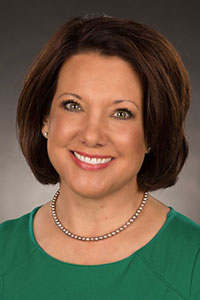
Laura Woodworth-Ney
Former Executive Vice President and Provost, Professor - American History
Research Interests
Federal Indian policy, federal reclamation policy, women, irrigation ideology, and irrigated settlement in the American West.
Courses
Dr. Woodworth-Ney is not teaching in the department during her current administrative appointment as the chief academic officer of Idaho State University.
Books
Women in the American West. Santa Barbara, CA: ABC-CLIO, 2008.
Mapping Identity: The Creation of the Coeur d'Alene Indian Reservation, 1805-1902. Boulder: University Press of Colorado, 2004.
Other Publications
"Negotiating Boundaries of Territory and 'Civilization': The Coeur d'Alene Indian Reservation Agreement Councils, 1873-1889." Pacific Northwest Quarterly 94, no. 1 (Winter 2002/2003): 27-39.
"Water, Culture, and Progressive Politics: Albin C. and Elizabeth DeMary and the Struggle for Local Control of the Minidoka Reclamation Project, 1905-1920." In United States Bureau of Reclamation, A Century of Water for the West, 1902-2002. Denver: U.S. Department of the Interior, 2002.

